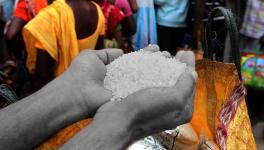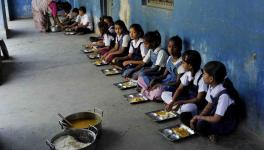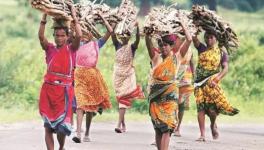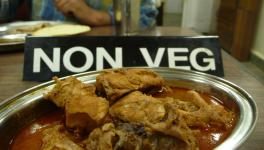9 Months After Lockdown Hit, Vulnerable Groups Still Don’t Have Enough Food
A large number of households from vulnerable and marginalised communities in different parts of the country reported lower levels of income, reduced intake of cereals, pulses, vegetables and eggs/non-vegetarian items, worsened nutritional quality and an increased need to borrow money to buy food during the ongoing pandemic, according to the Hunger Watch launched by the Right to Food Campaign and other networks in September this year. The Hunger Watch was launched to track the situation of hunger among vulnerable and marginalised communities.
Hunger Watch conducted a survey of 3,994 persons belonging to vulnerable and marginalised communities from 11 states across the country. Among the surveyed persons, 2,186 were from rural areas and 1,808 were from urban areas. As much as 79% of the respondents had income less than Rs 7,000 per month, and about 41% of them earned less than Rs 3,000 per month before the lockdown.
According to the preliminary report of the survey, “People continue to have depressed incomes and are yet to reach pre-lockdown levels. For about one in four respondents, the income in September-October was half of what it was before lockdown. Over two-thirds say nutritional quality has worsened and quantity has reduced (in September-October) compared to pre-lockdown.”
About 43% of the respondents had no income in April-May. Out of these people, only about 3% have gone back to income levels from before lockdown; 56% of those who had no income in April-May continued to have no income in September-October as well. Compared to April-May, fewer people had no income in September-October period but roughly 62% of the respondents said that their income reduced compared to pre-lockdown time. Moreover, among those whose income reduced, for about one in four respondents, the income was half of what they earned before lockdown.
Further, 64% of the respondents reported that their consumption of lentils decreased during the lockdown, and 28% reported that it ‘decreased a lot’. The consumption of green vegetables decreased for 73% people, and for about 38%, it ‘decreased a lot’. About 77% of the surveyed families belonging to the particularly vulnerable tribal group (PVTG) reported that they had to reduce the quantity of food consumption in September-October compared to before lockdown.
Quantity of food consumption decreased for about 74% of the surveyed Dalit families and for about 36%, it ‘decreased a lot’. About 54% of the surveyed Adivasis reported that their quantity of food consumption decreased. About 7% reported that their quantity of food consumption increased in the last 30 days. About 69% of the OBCs said that their consumption either decreased somewhat or decreased a lot and just 3% said that their quantity of food consumption increased in September-October. For about 68% of those in the general category, the quantity either ‘decreased somewhat’ or ‘decreased a lot’ and only about 3% reported that their consumption increased.
About 17% of the respondents said that they consumed eggs/non-veg ‘often’ before the
lockdown. Among them, 91% said that their eggs/meat consumption has decreased in
September-October and a staggering 58% said that it has ‘decreased a lot’. About 46% of the
respondents said that they consumed eggs/meat ‘sometimes’ before the lockdown and among them, 76% reported that their egg/meat consumption has decreased.
About 56% of the respondents never had to skip meals before lockdown. Of them, one in seven had to either skip meals ‘often’ or ‘sometimes’ in September-October. In September-October, about 27% of the respondents sometimes went to bed without eating. Further, about one in 20 households often went to bed without eating.
The preliminary report said, “Malnutrition levels in India have always been high. However, some improvements have been seen in the last 10-15 years following Supreme Court interventions that universalised school meals and supplementary nutrition through ICDS and expanded Public Distribution System (PDS) (through orders passed under the ‘Right to Food’ case, PUCL vs Union of India, 2001 to 2017). These interventions were further strengthened through the National Food Security Act (NFSA), 2013.”
It added, “Among other things, NFSA guarantees 5 kilograms of cereals per person per month at highly subsidized prices to 67% of the population through the PDS. While these entitlements do contribute to the overall food security of households and play an important role in preventing starvation, ensuring nutritious diets for all and eradicating malnutrition requires much more. A well nourished society is not only a constitutional imperative but is also vital to improve the health of the economy.”
Get the latest reports & analysis with people's perspective on Protests, movements & deep analytical videos, discussions of the current affairs in your Telegram app. Subscribe to NewsClick's Telegram channel & get Real-Time updates on stories, as they get published on our website.
























